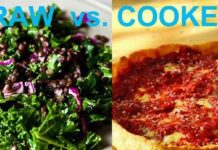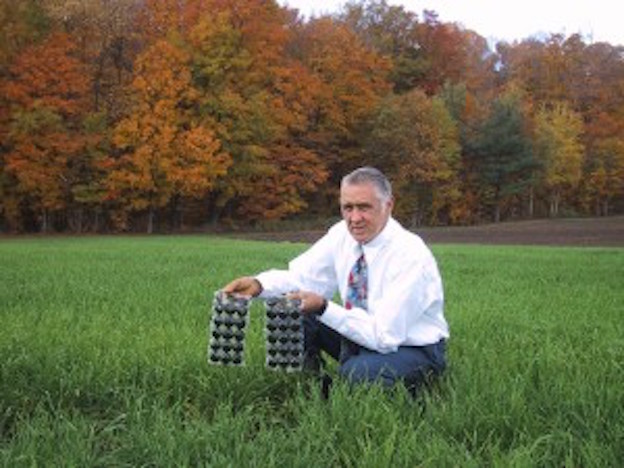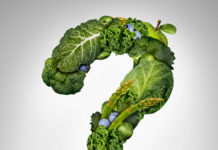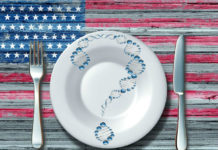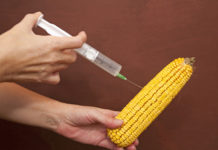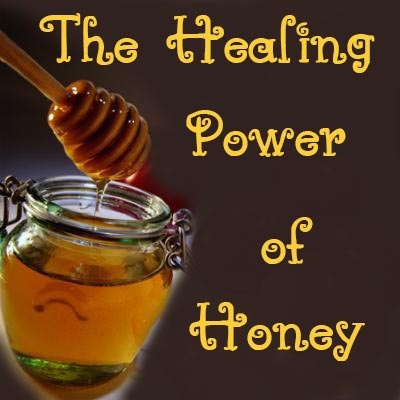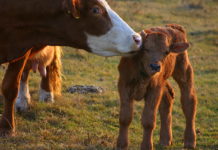Is it OK for Vegans to use Honey for its Healing Properties?
With all the health challenges facing everyone these days, you may want to think about the healing properties of honey, even if not as part of your regular diet. For example, some people use honey to treat allergies. The alternative is allergy shots and prescription drugs. Which is more compassionate?
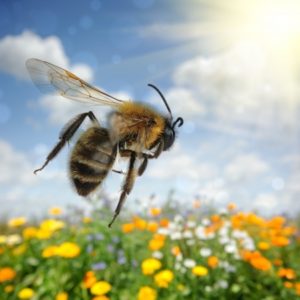 It’s obvious that we shouldn’t limit our compassion to just mammals or fish. But you may not realize just how many insects are actually killed in the farming of all the “vegan” foods we rely on every single day. For the most part, bees are not seriously harmed in the production of honey. In fact, honey production is a rather small part of the total honey bee economy. Most of the money in bee-keeping comes from renting of hives to pollinate our beloved fruits and vegetables — which actually is more harmful than you may realize.
It’s obvious that we shouldn’t limit our compassion to just mammals or fish. But you may not realize just how many insects are actually killed in the farming of all the “vegan” foods we rely on every single day. For the most part, bees are not seriously harmed in the production of honey. In fact, honey production is a rather small part of the total honey bee economy. Most of the money in bee-keeping comes from renting of hives to pollinate our beloved fruits and vegetables — which actually is more harmful than you may realize.
Bees are actually highly intelligent. I’ve seen amazing examples of that myself! And as pollinators they help us grow about 30 percent of all food! About 100 foods are dependent on commercial bees, including almonds, avocados, broccoli, cherries, cucumbers, lettuce, peaches, pears, plums, sunflowers, and tomatoes. But life for these bees may be far worse than it is for honey bees. Bee keepers transport hives sealed inside trucks, often with High Fructose Corn Syrup (HFCS) as their only food for the journey. Yet, most vegans won’t go anywhere near HFCS themselves!
Further, when bees pollinate even organic fields, they leave behind, mixed in with all that food, their sweat and “blood” (called hemolymph). You can look only for foods pollinated by wild bees, of course. But for most vegans that probably isn’t very realistic. Some bees are just inevitably harmed in any large-scale agricultural operation, even on organic farms. They may not spray synthetic pesticides, but they do make use of natural chemicals. So all we’re really left with is to use more of our common-sense rather than a fanatical adherence to a policy we may not actually understand. For that reason many vegans exclude honey from their diet despite the many healing properties of honey.
Of course, all animal suffering should be avoided, but it seems to me that our standards should be reasonable. I basically use the same logic that vegans use to be unconcerned about the insects that smash on the windshield when we drive down the highway — though I personally I try to remember to pray for any insects that hit my windshield.
Buy from Local Organic Farmers Whenever Possible
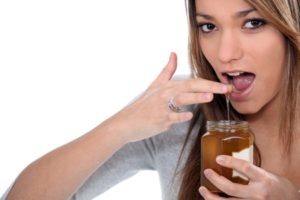 On a final note, there actually is something in the honey industry that everyone, vegan or not, should worry about — mislabeled Chinese honey! Most Chinese honey, known for high levels of toxins, finds its way into our country illegally. In addition, Chinese industrial practices are far worse for the bees than anything we do in the America. So if you do decide to use a little honey for your allergies, please do your best to avoid corrupted and possibly toxic Chinese honey.
On a final note, there actually is something in the honey industry that everyone, vegan or not, should worry about — mislabeled Chinese honey! Most Chinese honey, known for high levels of toxins, finds its way into our country illegally. In addition, Chinese industrial practices are far worse for the bees than anything we do in the America. So if you do decide to use a little honey for your allergies, please do your best to avoid corrupted and possibly toxic Chinese honey.
The best way to avoid problems, as with everything else, is to buy as much as you can from your local organic farmer! Remember, honey bees forage for their nectar and pollen usually within about two miles, although have been seen foraging 2 or 3 times that far from the hive. So when buying “organic” honey, remember that the bees’ entire foraging needs to be free of those toxic chemicals. So a hive needs to be surrounded by at least 16 square miles of all organic plants!
Wild plants may seem OK at first.d but if the hives are near Dept. of Natural Resources lands that could be a problem since your government uses chemicals all the time, even in some remote areas. The list to avoid also includes non-organic farms, golf courses, residential neighborhood, and industrial areas. Places where water may contain pollution and chemicals is also something to avoid. Of course, genetically modified crops (GMO’s) are a definite forbidden zone, — and even needs a large buffer zone for the bees. Basically, if the bees can reach any area that has chemicals, synthetic fertilizers, herbicides, pesticides or sludge, you can say goodbye to your organic honey — and it could take another 2-3 years to get re-certified. This can makes organic honey virtually impossible to produce for many beekeepers.
How Honey Bees Live
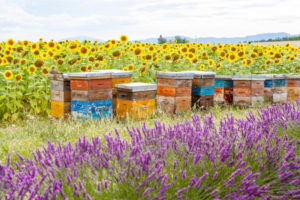 Climate change, the over-use of inorganic pesticides and toxic chemicals, and generically-modified (GMO) crops have all severely damaged the sources of forage for all bees — and can affect the healing properties of honey, as well. That’s why it’s more important then ever to start doing more organic beekeeping. It’s essential to keep hives away from toxic pesticides and GMO crops!
Climate change, the over-use of inorganic pesticides and toxic chemicals, and generically-modified (GMO) crops have all severely damaged the sources of forage for all bees — and can affect the healing properties of honey, as well. That’s why it’s more important then ever to start doing more organic beekeeping. It’s essential to keep hives away from toxic pesticides and GMO crops!
Bees can fly for several miles, but usually go about 2 miles or so daily, so your farm needs to be at least that far from any chemical spraying or GMO crops. That farm down the road may be doing more harm that good if it isn’t organic. Honey bees also need lots of forage for plants like like clover, buckwheat, goldenrod and flowering trees. And, of course, you’ll need a nearby water source and plenty of nearby trees for protection from wind in winter. Hives also need some shade to prevent overheating and bees prefer southeast entrances facing the morning sun.
With bees disappearing these days from our industrial farming methods, its more important than ever to deal with parasites without chemicals — if they were ever necessary at all! You’ll need screened bottom boards, physical traps, and other pest management techniques to control pests. Some milder, less toxic miticides ight be OK, like thyme-based ApiLifeVar and ApiGard as well as formic acid or oxalic acid. Some of these ingredients may not be organic, but it’s probably alright as long as they are natural and not synthetic or toxic. If a treatment is designed to kill pests and other less beneficial insects (by human standards), bees probably won’t feel very good from them either. But once you get a strong colony thriving nothing will destroy it!
Let’s say you have the perfect organic land for your bee hives. Now the beeswax foundation must also be organic, which is really difficult. To make your own it has to be from your organic hives — which you don’t have because you can’t get that organic foundation! Plastic foundation can be used if coated with organic wax. But organic wax is hard to find. Smaller apiaries that meet the other organic requirement could start with foundation-less hives then use that wax, but that takes a lot of time.
Finally, don’t expect to harvest you honey right away. It can take a couple of years to let a new hive strengthen and grow. After 3 years it’s okay to take some honey as long as there’s enough there and there’s no drought just be careful to leave enough honey for the bees to eat during winter because you could weaken a colony by taking too much of its stored food.
Also Read:



